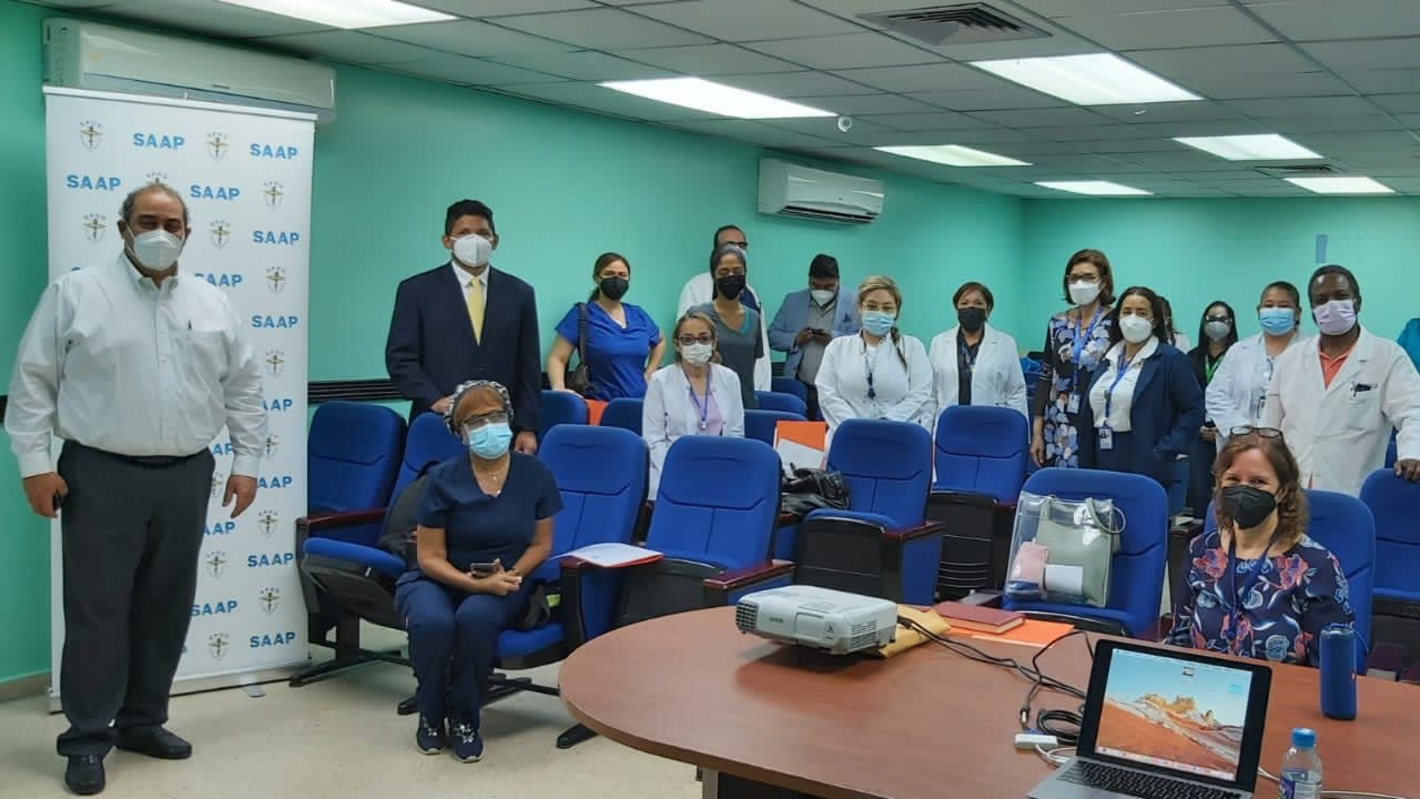
Montevideo, September 3, 2021- The Perinatal Information System (SIP, for its acronym in Spanish) has a long history in Panama. Since 1983 it has been operational in the country’s most important maternity hospitals, including the Santo Tomás Hospital of the Ministry of Health of Panama, located in the capital. This health care center (which is part of the sentinel centers of the CLAP MUSA Network) has a robust database on perinatal maternal health precisely thanks to SIP. This system is included in the national standards; it is the country’s official medical record in the field of obstetrics, and the country is currently in the process of implementing the SIP PLUS version.
“The advantage of SIP PLUS is that it reduces any data losses, so when the pregnant woman arrives for childbirth, all the information is complete,” explains Dr. Raúl Bravo, a doctor at the institution. Dr. Bravo is a SIP PLUS user and a key figure training health care workers on the use of this platform; he concludes: “Primary care doctors recognize the advantage that they now know what happened to the patient either during childbirth or an abortion. In the past, the information would get lost; the patients presented without their cards and the staff could not see their previous history. Now, the health care professionals are going to have the information available in real time.”
Engineer Edward Toribio has also been actively involved in the implementation of SIP PLUS as a government official working in the programming area of the IT Directorate of the Panamanian Ministry of Health. Toribio appreciates the advantages of the system over others, from the IT perspective: “The SIP Plus platform removes hardware limitations; we no longer have to use specific equipment, as it is available and runs in various devices. SIP PLUS is within reach at all our facilities; we can reach places that lack any physical connections, but that have access to satellites that enable people to use mobile devices.” In that sense, Toribio recognizes the personalized support they have received from “the support community” of the CLAP SIP team, who provides them with on-going updates whenever requested.
Bravo explains that due to the pandemic, the implementation of the new SIP version was somewhat delayed, but that, nevertheless, the data is encouraging, as 10 regions in the country are in the process of implementing it and 35 health centers already have the software installed.
For the Ministry of Health, the objective of installing the SIP PLUS is to obtain data to feed policy-making processes: “SIP is an efficient and effective tool for decision-making because it has a number of very helpful indicators. We are firm believers in the system, that's why we have been implementing it for years,” says Dr. Geneva González, Head of the Sexual and Reproductive Health Program at MINSA. One of the achievements that González emphasizes is that the Social Security Fund (another health entity in the country), is incorporating the platform: “if we manage to unify, it will be the greatest achievement of the Panamanian SIP.” MINSA and the Fund have already laid the foundations for developing an effective interconnection to enable the exchange of data.
SIP is the standard roadmap for perinatal care in the region, as it gathers key information from every pregnant woman, from the first antenatal visit to the discharge of the mother and her newborn from hospital.
During 2020 and 2021, 21 countries received CLAP support for the operation of SIP, based on their needs: Uruguay, Trinidad and Tobago, Argentina, Bolivia, Brazil, Colombia, Costa Rica, Dominican Republic, El Salvador, Guatemala, Honduras, Nicaragua, Panama, Paraguay, Peru, Barbados, Dominica, Grenada, Guyana, St Kitts & Nevis, Venezuela.



